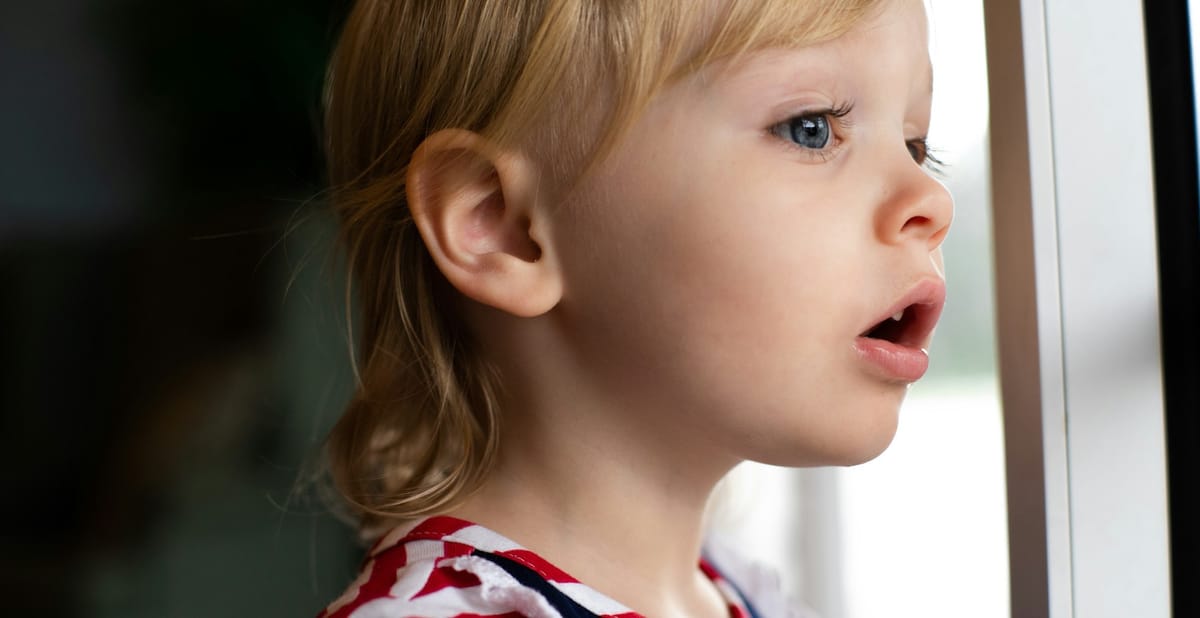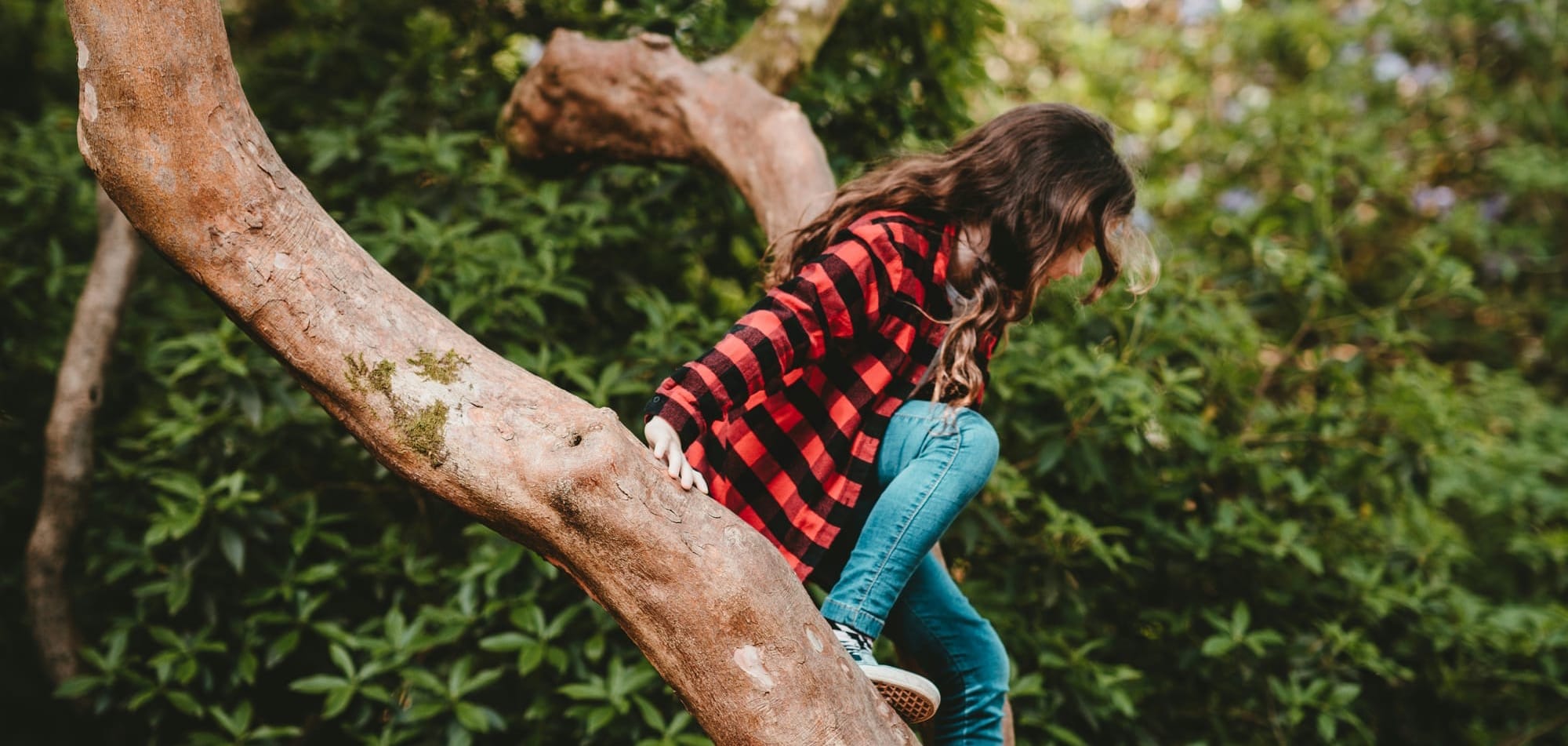Thoughts: Should kids be brave?

The world isn’t easy, so kids have to be brave sometimes. But not always! Knowing when bravery is required and when it’s optional—or even detrimental—can help you guide your grandchildren (and yourself) when you’re out and about in the world.
For example, how would you react in situations like these?
• The grandchild gets a tiny scrape and reacts with tears and howling.
• It’s free dental clinic day at the child’s school, and the grandchild’s parents have told you they want the child to have a checkup. But you arrive, you find that your grandchild has refused to be seen.
• The child climbs up a tree, and says it’s too scary to come down.
• The parents have asked you to take the grandchild to music class, but once there, she refuses to go in.
• You’re at the zoo, and the grandchild has a chance to touch a tarantula, but backs away.
• At the park, a child with a disability behaves in unusual ways, and your grandchild is scared.
• One of the grandchildren has broken a window, and none of them is owning up.
• A grandchild tells you about a friend who is being bullied.
Do you want them to be braver in the situation? Why? Is it because…they’ll make your proud?...big kids don’t cry?...there’s nothing to be afraid of?...they need to try because the experience is important?...they need to stick up for their friends? Do you think you should let the child off the hook about being braver in the situation, why? Maybe you want to teach empathy by example? Or maybe you’re scared of heights or spiders or confrontation, too?

Why be brave?
The ”why” is likely to reflect your values. I remember one example back when I was maybe 11 years old and taking piano lessons from a neighbor in her home. Some illness was making the rounds, and the piano teacher’s child had caught it. At one point during my lesson, the child, a little younger than I, was crying upstairs. The teacher got up, went to the bottom of the stairs, and called up, “Be brave!” My young self found this frightening—why didn’t my teacher offer her child an aspirin, or an ice cube to suck on, or?? My mother explained to me later that the family belonged to a religion that forbade use of medicine. For them, the “Be brave!” was both an encouragement and an imperative for the child. But I’ll never know whether the child, or the grown-up she became, was well-served by the values—the why—that inspired the parent’s approach.
A more common example: Starting school. Our son had to start kindergarten a week late due to illness, so the class was already in a routine he didn’t know. My husband, who dropped him off that first day, painfully remembers brown eyes tearing up as he left—and that terrible feeling that he could not know how our son would feel or cope as the day went on. Why did we leave him when he was afraid? Because we valued education and its long-term importance for our son’s life. (And of course we also knew he would be physically safe.)
When is it good to be brave?
Thinking about the “why?” is one way to decide whether encouraging a kid to stretch is a good idea. A related approach is to consider why people tend to think of bravery as a good thing in itself—a virtue. Philosopher Linda Rabieh, in her book Plato and the Virtue of Courage (for simplicity, I’ll count courage and bravery as exact synonyms), discusses three ways courage contributes to life: it helps us endure difficult situations, helps us tackle problems so we can get what we want or need, and allows us to defend others. The final one, at its outer limit, is called “heroic courage,” which is exhibited by people who are willing to give their lives to defend others.
But like the other virtues (generosity, temperance, forbearance, gentleness, etc., etc.), courage is complicated. Aristotle famously pointed out that a golden mean of courage is best—depart from the mean on one side, and you’re fearful and get stomped on. Depart on the other, and you act rashly, putting yourself or others in danger.
That complexity means that even for basic grandparenting decisions, like how to react to the howling child, the “what to do” is not necessarily obvious. In each case:
• The circumstances matter—how high up in the tree, how good a climber, how afraid the child is…each call for a bit of courage needs to be assessed to find the right degree of courage.
• Because courage, like all the virtues, is one part of a whole life, it needs to be balanced with other virtues. So, for example, you could model both courage and curiosity (another virtue) by touching the tarantula yourself. Or gently help the grandchild see the roles of honesty and compassion as well as courage in the broken window and bullied friend examples.
• Your response needs to understand that the child is a beginner. Virtues need to be learned and practiced—a process that takes a whole lifetime. Grandparents have a lot of room for teaching courage, as well as for helping the child see what is not dangerous—as with helping the child understand disabilities.
Long term, in this way of thinking, the goal is not just “be brave.” It’s something more like helping the grandchild practice toward the kind of bravery you’d like them to have.
The “you” in that last phrase brings up another point:
• The parents’ values matter—out of reasonable consistency for the child and respect for the parents’ goals. I’m not recommending lockstep with the parents, necessarily: It can be good for kids to navigate different responses and value systems. I am recommending checking in with the parents about what they would do, and why.
Brave because you care
Going back to the beginning of this post, the world isn’t easy—far from it. Millions of kids get forced to be brave in ways and under conditions caring people wouldn’t wish on any of them—abuse, prejudice, poverty, hunger, war, natural disasters, severe illness. The child’s bravery, if they muster it, might make the circumstances easier to bear. But to my way of thinking, the most crucial use of courage in these terrible situations is for adults to use their courage to prevent or solve the problems as best they can. Why? Let’s just say for love of the children.